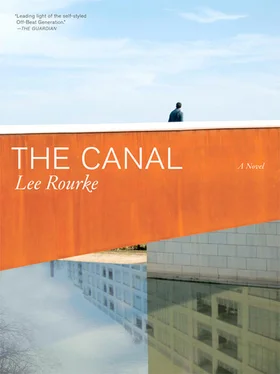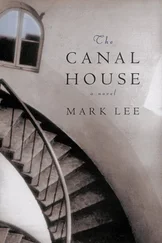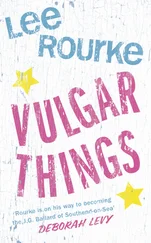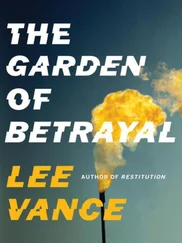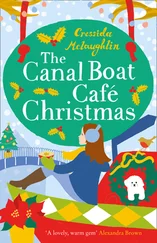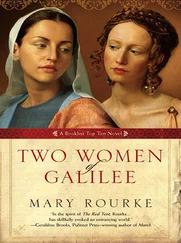I wondered if he had filmed them attacking me?
As soon as the ripples abated, life began to return back to normal. Four yapping coots glided across the canal by the rusting iron bridge, circling above the exact spot where the scooter had entered the murky water. One of the coots dipped its head underneath a few times before diving down to investigate the new acquisition. The seeping swirls of oil and petrol on the water’s surface didn’t seem to bother the submerged coot at all. The remaining three entertained themselves with a random plastic milk carton. One of the coots pushed at it with its beak a couple of times before suddenly chasing it along, shrieking to itself in what I could only imagine was excitement. Then, as if orchestrated to coincide with some secret signal, each of the three coots dived down to join the first at the bottom of the murky water in unison. I watched as a tiny pattern of bubbles formed back up on the surface. They were down there for some time before, one by one, they popped up again as the large swan, its mate, and two Canada geese elegantly paddled over to join the commotion. The four coots quickly moved on, over to the far side, beyond the rusting iron bridge. I watched the beautiful, elegant swan and its mate. He looked at me momentarily, and then looked away, heading towards the spot where the scooter lay. His long neck shot downwards, into the murky water above the scooter. The two Canada geese did the same. All three completing the investigation together. After twenty seconds or so of this they paddled away in the same direction they were originally headed, towards Hackney. I walked back over to the bench. She was there, sitting there, on her side of the bench. She was looking at me. She turned away quickly, back to the canal and the whitewashed office block.
Before I got to the canal that morning I had cooked myself a large breakfast of fried eggs, smoked bacon, fried bread, sausages, hash browns, black pudding, mushrooms, and fried tomatoes. I ate all this with four rounds of toast and a large pot of tea. I had been feeling intense pangs of hunger ever since the teenagers had attacked me. I walked to the canal that morning and I distinctly remember thinking about what I could eat for lunch. I was still digesting my breakfast but already I was thinking about lunch. I remember walking along the towpath towards the bench thinking about a huge plateful of lasagne and homemade, thin-cut chips. I couldn’t help myself. It’s all I could think about. Food had never really bothered me to such a degree as it did that day. I soon began to think about what I should have for dinner later that evening: I wanted duck fillets with red cabbage and cinnamon with a simple mash. I wanted to wash this dinner down with pints of Guinness — maybe four or five. Before I went to bed that evening I imagined I would have a hot steaming plate of crumpets with knobs of creamy butter, accompanied by a warm glass of milk and vanilla sugar. Then I would eventually go to bed, wake up after midnight, creep into the kitchen and devour a leftover plate of cold meats from the refrigerator.
I remember thinking to myself, as I was walking over to my bench, that I should calm down a bit — that I should snap out of it.
She was wearing a navy blue Chinese-style workers’ blouse with matching three-quarter-length trousers and flat shoes. They looked like ballet shoes, although they weren’t. I distinctly remember thinking she looked good. Really good. Her hair was parted in the middle, bobbed and clipped at the sides with two red hair clips. She was carrying a small handbag. As usual, she was staring straight ahead across the canal at the whitewashed office block. She yawned a couple of times, big, wide yawns, sucking in the oxygen around her, each yawn lasting an age. She didn’t seem to care, not bothering to cover up her mouth. Suddenly she turned to me and began to stare. Nothing else but a long, penetrating stare, her eyes wide open. She stared at me for what seemed like a lifetime, although it was most probably only a couple of seconds. Then she turned away, back to the whitewashed office block. In those couple of seconds it felt like I had stopped breathing, or like I had forgotten how to — as if I was momentarily dead. The weight of those two seconds — the weight I felt — a suffocating weight that consumed me. For those two seconds, listless in its grip, I was dead.
And then it passed.
I wanted to shuffle up to her, to playfully squeeze her leg and make her laugh. I wanted to see her laugh so much. I knew this would be futile. I knew that if I tried such a thing it would probably be the last time I ever saw her.
Suddenly there was a strange sound, a racket and brouhaha that sounded odd. I leaned forward and looked immediately to my right, towards Wenlock Basin and Islington. Two men were staggering along the towpath. One of them — both were clearly drunk — was carrying a large bag of apples, while his companion was holding a large plastic bottle half-filled with a clear liquid. Both of the men were eating the apples, taking huge bites, finishing each in two or three gulps, then throwing the core into the canal, whilst spitting the pips to their feet and taking liberal swigs from the large plastic bottle. As they approached the bench I realised that they were both Russian, or maybe Polish. They had hard-looking, Slavic features and were dressed in thick, woollen polar neck jumpers. When they passed the bench they both turned and stopped. They looked at me and then, in unison, looked at her. Then they said something. I shrugged, not understanding. She continued to stare straight ahead. Again, they said something. I could smell the alcohol pouring from their mouths. Again, I shrugged, trying to gesticulate that I simply couldn’t understand. They repeated it again, and again I shrugged. Then they offered us both an apple from the bag. I refused. Then they offered us both some of the liquid in the large plastic bottle, indicating to us that it was good, that it would warm the insides — at least that’s what I understood the simple gesticulation of rubbing the stomach, executed by both men to mean. Again, I refused. They both began to laugh. I wanted them to leave us alone. I wanted them to carry on to wherever it was they were going, but they stood there laughing to themselves at whatever it was we had done — or not done — to amuse them. And still she continued to stare straight ahead, at the whitewashed office block, like they weren’t even there. Like I was imaging it. Dreaming. As my right leg began to shake they both turned to start shouting at a cyclist who had suddenly sped past them a little too close for comfort. The cyclist continued towards Hackney. The two drunken Russian or Polish men began to run, to stumble after the cyclist, shouting their obscenities at him. Then, as if it was quite normal to do so, they began to throw apples in the cyclist’s direction. As they did this, moving away from us, one of the drunken men fell onto the towpath, tripping over an uneven slab, still shouting and trying to throw apples. His friend helped him back up to his feet. Gradually they staggered away, soon forgetting about the cyclist. I watched them. After they had passed under the rusting iron bridge, they began to throw apples at each other, both missing, the apples hitting the murky water or smashing onto the towpath. I watched them until they disappeared out of sight. Soon their voices faded, too. And then nothing, just calm, like they had never appeared. A strange hallucination. I turned to her. She was still looking over at the whitewashed office block.
The canal was looking quite filthy; more so than usual. It was in need of a desperate dredging, but the dredgers were nowhere in sight. I thought about the grease and oil seeping into the murky water from the discarded scooter beneath its surface. I wondered what kind of effect such a thing would eventually have on the health of the swans if it was left there, underneath the murky water, ignored by the dredgers.
Читать дальше
